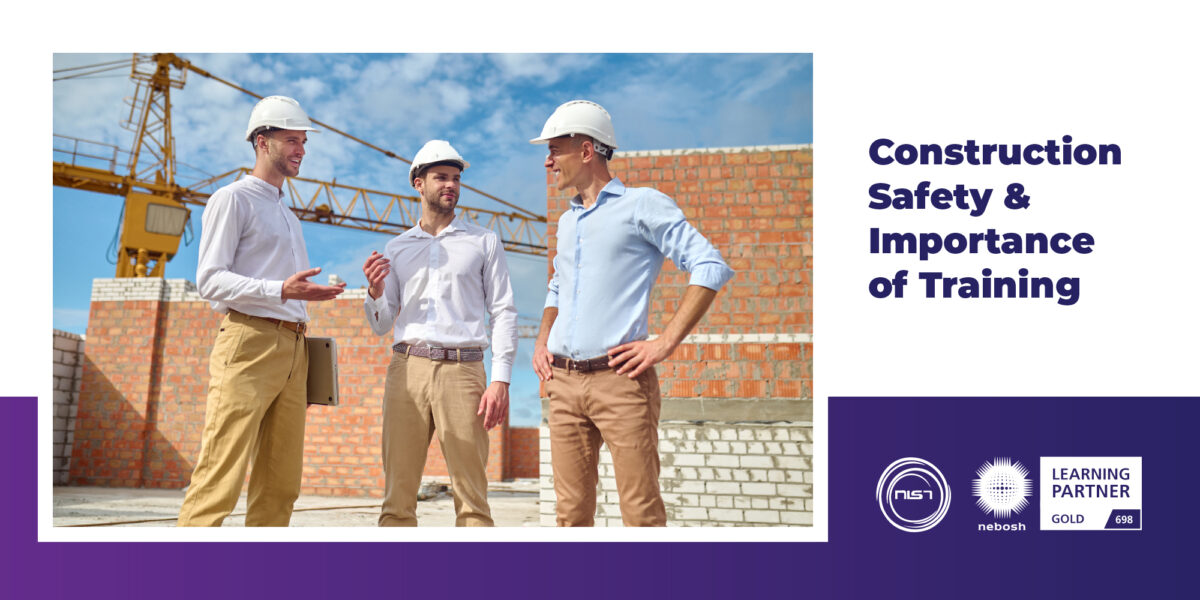Construction Safety & Importance of Training

Following agriculture, the construction industry is India’s second-largest employer and contributor to the economy. Due to increased income and urbanisation, the country has undergone a massive construction boom in recent years.
A prosperous business might result from a successful building project. While construction is a large industry, it also carries many risks, necessitating the need for construction safety. Every construction site has risks on a daily basis, and the construction industry accounts for 24.20% of occupational fatalities in the UK each year, according to a British Safety Council research. Every year, hundreds of male and female employees are electrocuted or buried under rubble, making building India’s deadliest industry. Every day, 38 people die in fatal accidents. In fact, falls from great heights, electrocutions, crumbling walls, and scaffolding are responsible for one in every four construction worker deaths in India.
It is the employer’s responsibility to provide construction safety training before work begins in order to avoid future injuries or fatalities. Construction safety training is vital for keeping employees safe and healthy, as well as avoiding harm or tragic events. The following are some of the Government Acts that have been codified to manage the employment and working conditions of building and construction employees:
Construction Safety Training:
Construction site mishaps can occur anywhere, at any time, for any reason, and can have a catastrophic effect on people’s lives, property, and finances. There are, however, a number of ways to lessen their effects, particularly when it comes to serious injuries or fatalities, as these risks could be managed if construction companies were able to prevent accidents by taking advance precautions during construction projects, even though they may seem insignificant!
Investments in safety have a significant potential to help the construction industry. The best way to lower accidents and raise project quality safety is to invest in construction safety.
An efficient health and safety management system must be put in place since complex facilities like malls, high-rise structures, factories, and industrial complexes require more personnel and resources to handle all elements of worker safety.
Need for Safety in Construction Industry
In the construction sector, fatalities are five times more common than in the manufacturing sector, while significant injuries are two and a half times more likely.
The necessity for safety knowledge in the construction business has been apparent during the last few decades. This is because work-related injuries, workers’ compensation, insurance premiums, injury-related indirect expenditures, and legal fees are so expensive. The amount of time lost each year as a result of work-related illnesses and accidents on the job site is significant.
Workers should receive safety training, and appropriate safety management should be set up to monitor and reduce risky acts and harmful situations at the site, in order to prevent all of these losses.
The advantages of construction safety training include
- Increase in business efficiency
- Lowering the rate of absences among construction employers.
- Completion of the building project on schedule
- Enhancing the wellbeing of employees
- Retaining staff
- Teaching staff about organisational policies
- Management of risk
Why NIST Global?
NIST offers high-quality training programmes for people and organisations in a variety of industries, including IT/ITES, construction, manufacturing, health care, and more. NIST is also India’s first NEBOSH Gold Learning Partner.\ Our staff of instructors has a combined total of more than 15 years of teaching and training expertise. They are all devoted professionals. NIST is your greatest option if you’re looking for a trainer for your company’s safety programme. Contact our customer service department at +91 9384663536 or send an email to [email protected] for further details.












Responses